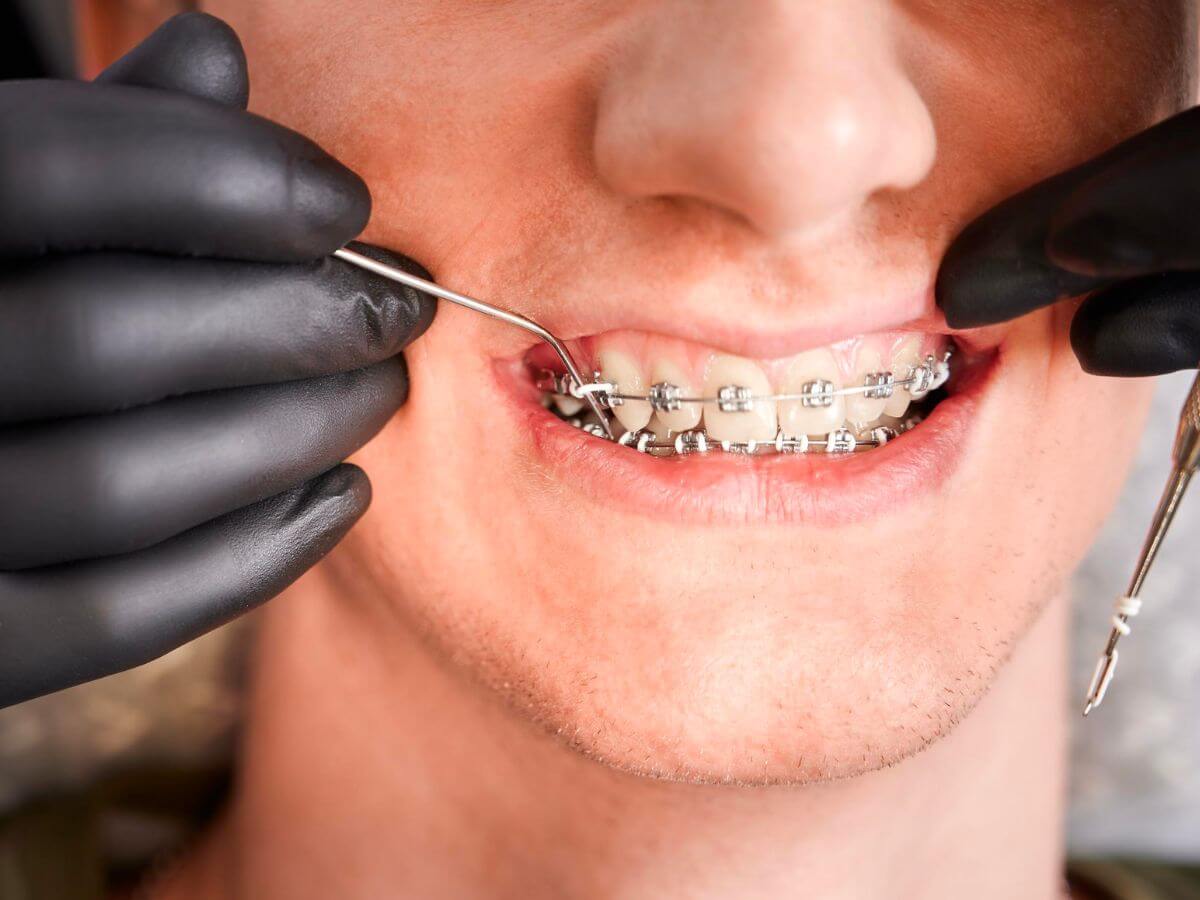Managing Braces Pain: My Braces Hurt So Bad, What Can I Do?

Experiencing discomfort due to wearing braces? You're not alone. It's a common issue that many brace-wearers face, especially after adjustments or the placement of new brackets. While this pain might seem unbearable at times, it’s important to remember that it's a temporary ordeal and forms part of your journey towards improved oral health and a picture-perfect smile.
Braces pain happens as pressure shifts teeth into alignment. Discomfort peaks after adjustments, with adults often feeling more pain than teens. Random aches are normal, but severe, ongoing pain may need orthodontic attention. Though uncomfortable, the pain is usually temporary and part of the realignment process.
Nature and Intensity of Braces Pain
What is braces pain? Why do braces hurt? Simply put, braces work by applying pressure to your teeth in order to shift them into proper alignment. This continuous force can result in discomfort and soreness as your mouth adjusts to the new positioning.
Contrary to some myths, the process of getting braces installed doesn't involve any direct pain, but the discomfort can kick in a few hours or days afterwards. The degree of pain from braces greatly varies from person to person. For some, it's a slight annoyance or discomfort; for others, it feels akin to a persistent toothache.
Random teeth hurting with braces is fairly normal. When you're not eating or talking, and there's nothing else going on in your mouth that might draw attention away from your braces, that is when you may notice random spurts of pain. This is due to the consistent pressure being applied by the braces pushing and pulling your teeth.
Regarding intense brace-related pain; if you find yourself on the verge of tears frequently due to extreme discomfort or throbbing pain, something could be wrong. A general level of discomfort is expected but not severe pain which makes daily life unbearable. If this happens regularly consult with your orthodontist immediately.
The most painful part of having braces primarily comes down to two factors – adjustment times and tightening appointments. During these sessions, orthodontists readjust the wires exerting pressure on your teeth which may lead to temporary heightened sensation of discomfort ranging from mild pinching feelings all the way up to moderate levels of sustained ache.
While everyone’s experience varies widely, adults might feel more discomfort than teens right after getting their braces tightened. This happens mainly because teenage bones are still growing making them generally easier (and less painful) to adjust than adult bones.
Duration and Timing of Pain

Braces pain is a common problem faced by individuals who opt for orthodontic treatment. When you first get braces, there's an initial period of adjustment. Typically, the worst pain is felt within 24 hours after the orthodontic appointment, as your mouth is getting used to the foreign material and pressure on your teeth. Braces pain subsides after a few days for most people, but your experience could fall anywhere from day one discomfort to three days or more.
Braces usually hurt the worst on the first day. The pain gradually wanes with each passing day as your teeth slowly adapt to their new positions. Over time, these sensations will markedly lessen. It generally takes about a week for most patients to adjust fully. This initial period can be accompanied by some gum or oral tissue soreness due to unfamiliar contact points with the brackets and wires.
On another note, some patients report experiencing more intense braces discomfort during the night than in daytime hours. This phenomenon may be attributed to many factors including changes in blood flow when lying down, therefore enhancing sensitivity. Or it could simply be because daytime activities help distract from any lingering irritation.
Remember that experiencing pain isn’t a sign things are going wrong – instead, it showcases that your braces are effectively realigning your teeth into a healthier position.
Pain Relief and Management
Experiencing discomfort from braces is quite common, especially after getting them tightened or initially fitted. However, you don't need to suffer in silence; there are various ways to manage and alleviate braces pain.
Saline Solution
One simple yet effective method is rinsing your mouth with a saline solution. Take warm water and mix it with a considerable amount of salt. Taking small gulps, swish the saline solution around your mouth gently. This method works wonders in soothing irritated gums and lessening the pain caused by braces.
Pain Relievers
Taking over-the-counter medications can also be beneficial when combatting braces pain. Acetaminophen or ibuprofen are popular choices but remember: always follow the instructions on the bottle for dosage to ensure safety. As these medications could potentially have side effects, consulting with your dentist before taking any new medication is crucial.
Cold Compress
Cold compresses applied externally are another way to relieve discomfort from braces. Place the cold compress or ice pack on the area of the face where you're experiencing pain for about 15-20 minutes at a time. This will help numb the region and reduce inflammation thereby offering significant relief.
Soft Diet
Incorporating soft foods into your diet can reduce strain on teeth and gums, resulting in less pain overall. Consider having options like mashed potatoes, applesauce, yoghurt, or smoothies after getting new braces or adjustments.
Read more: Foods to Avoid With Braces.
Oral Hygiene
Remember that consistent oral hygiene will maintain gum health and ultimately minimize discomfort from braces over time. Maintaining an effective routine of brushing twice daily and flossing will keep plaque buildup at bay which can reduce potential irritation and discomfort.
Are Braces Worth the Pain?

Braces are orthodontic devices used to correct misaligned teeth which don't just result in a crooked smile but also lead to other challenges like difficulty in chewing food or speech issues. Furthermore, they can also fix overbites and underbites that can increase wear on certain teeth and lead to premature tooth loss.
One important thing must be noted: yes, braces can cause discomfort. When first installed or during periodic adjustments, there could be an aching sensation within your jaw or gums. This pain might persist for a few days until your mouth is accustomed to the pressure. However, contemporary techniques have come a long way from the 'metal-mouth' braces of past decades. Modern-day solutions often involve less tightening and more gradual shifting—essentially minimizing discomfort.
Read more: Types of Braces.
So finally – is it worth the discomfort associated with braces? The answer largely depends on individuals' specific circumstances like the severity of teeth misalignment or related complications—but given the advancements in technology coupled with potential lifelong advantages—many find bracing up significantly worthwhile!
Your Trusted Braces Dental Specialist in Penang
Looking for a trusted dental specialist in Penang? Don’t let braces pain hold you back from achieving your dream smile. Our experienced dental specialists are here to guide you every step of the way. Curious about braces price and treatment options? Contact us today for a personalised consultation!
Curious about dental treatment costs in Malaysia? Explore our comprehensive guide on harga rawatan pergigian di Malaysia, including estimated prices for scaling, fillings, braces, and more.
👉 View the harga braces gigi — for general reference only and not representative of any specific clinic’s charges.
See you at Family Dental
Opening hours
Mon, Tue & Fri: 9am-6pm
Wed & Thu: 9am-9pm
Sat, Sun & Public Holiday: 10am-6pm